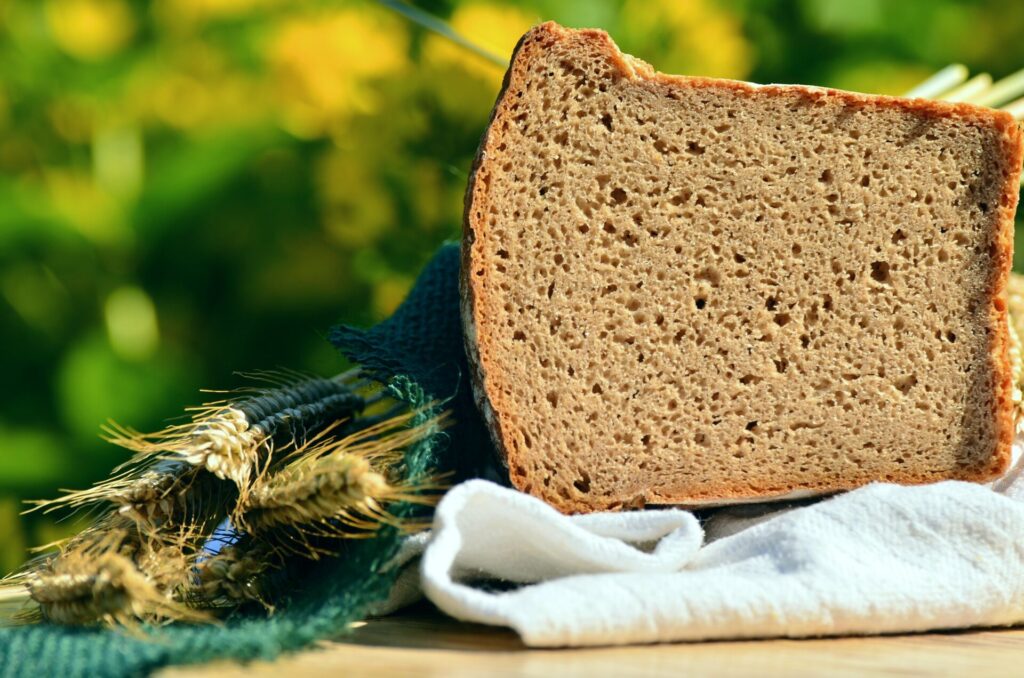Are gluten-free diets healthier? This trendy diet is said to do wonders for chronic ailments from migraines to gut inflammation. It’s also touted to improve general wellness and energy levels. But is going gluten-free beneficial for everybody?
Resident health advisor at The Women’s Healthline and functional physician, Dr Julinda Lee says if you’re not celiac or gluten-intolerant, adopting this trendy diet may do little for our bodies. “Avoiding gluten and hence wholewheat options and consuming gluten-free options which are typically low in fibre, may actually be less healthy.”

Gluten is a protein found in grains like wheat, rye and barley. Photo by Pixabay, Pexels.
When it matters
Gluten is a protein is found in certain grains like wheat, rye, and barley. Like with any protein, one can have an immune response to it, says Dr Lee. “This can result in a range of immune responses – from something more acute like allergic asthma and hives; and more delayed responses such as sinusitis and eczema.”
Some people can also develop an autoimmune response to this protein. Consuming gluten results in the production of antibodies that may damage the lining of the small intestines. When that occurs, one can experience nutritional deficiencies due to the inability to digest or absorb proteins.
She adds that gluten can also result “in an increase in intestinal permeability.” She explains that our intestinal cells are connected to each other by tight junctions. These tight junctions are adjustable in size to allow nutrients to pass, and they are closed after to prevent the excessive passage of proteins that can overstimulate our immune system.
“The problem is that gluten can result in a prolonged opening of these tight junctions and increase the likelihood of autoimmune diseases in people who are genetically susceptible to developing an autoimmune disease,” she says.
Not just a gut issue
The inflammatory-inducing protein can also wreak havoc on our hormones and affect fertility too.
Dr Lee tells: “Hormone disruptions are typically related to nutritional deficiencies in patients with celiac disease. Those who lose weight because of celiac disease can experience loss in their menstrual periods, thus affecting fertility. Osteoporosis is also another complication.”
She again reminds these inflammatory reactions in response to gluten “can result in sinusitis, gastritis or reflux, endometriosis, fibroids, subfertility (that is a delay in conceiving) and even joint pains.”
Going gluten-free is not necessary
Hold up if you’re ready to jump on the gluten-free bandwagon, because the doctors also say, it’s not necessarily helpful for all.
Dr Lee says: “Most individuals probably do not need to avoid gluten in their diet specifically, except those who are celiac or who have an autoimmune disease, or unless they find eliminating gluten from their diet improves certain health issues.

Gluten-free food may still be nutritionally deficient and tanked with sugar, sodium and fat. Photo by Eva Bronzini, Pexels.
Nutritionally deficient
Dr Benjamin Lebwohl concurs. The director of clinical research at the Celiac Disease Center at Columbia University says: “It is not an intrinsically wellness-promoting diet,” and there is no reason for someone who feels well to adopt one.
Going gluten-free makes your diet more restrictive, and ironically, this reduces the quality of your diet – you can be missing out on foods that will improve your health.
Such as whole grains that increase fibre in diets and are important for digestive health. Inadequate fibre can lead to constipation and other bowel problems. It also increases satiety for better weight management and has a positive impact on reducing chronic heart risks.
According to Singapore Health Services (Singhealth), the average Singaporean only consumes 13g of dietary fibre each day, although the recommended intake is 30g per day.
While fibre doesn’t just come from whole grains, it makes it more challenging to get in your fibre intake if you’re eliminating food groups to go gluten-free.
It does not fix an insulin problem
Removing gluten from your diet also does not solve an insulin problem, reminds Dr Lee.
Many gluten-free options, especially staples like bread, pasta, cookies, or cakes containing wheat substitutes such as rice flour, tapioca flour or corn starch, which are still highly refined and have high glycaemic indexes and glycaemic loads.
“Therefore, they still have the same negative impact on hormones such as insulin,” she says.
Gluten-free options of baked goods, she says, “do not make them healthier, and are not unlike regular options of the same food type,” since they tend to be nutritionally deficient, with no vitamins and minerals, and often stripped of fibre.
In this case, you’re better off avoiding foods that are typically high in wheat, for example, bread, cakes, and cookies, since they tend to be low in nutritive value and high in glucose and starches, which are negative for sugar control and inflammation.
More sugar, salt, and fat
The lack of fibre isn’t the only concern that doctors have. Dr Lee notes that gluten-free options of baked goods also typically contain more sugar to improve the structure and consistency of these items.
Ditto sodium and fat to make them more palatable. Dr Selvi Rajagopal, a specialist in internal medicine and obesity at John Hopkins Medicine, says processed gluten-free foods can contain high amounts of both and sugar. Consuming them can lead to weight gain, blood sugar swings, high blood pressure and other problems.
A gluten-free label on food does not make it healthy. She also reminds us that some gluten-free foods are also sources of important vitamins and minerals, such as B vitamins, iron, and magnesium.
For people who don’t have celiac disease or gastrointestinal irritation, she advises removing highly processed foods from their diet before removing gluten. She says many people feel better just by eating better – adding in more fruits and vegetables, incorporating more whole grains in their diet, and having lean protein – rather than removing gluten.
